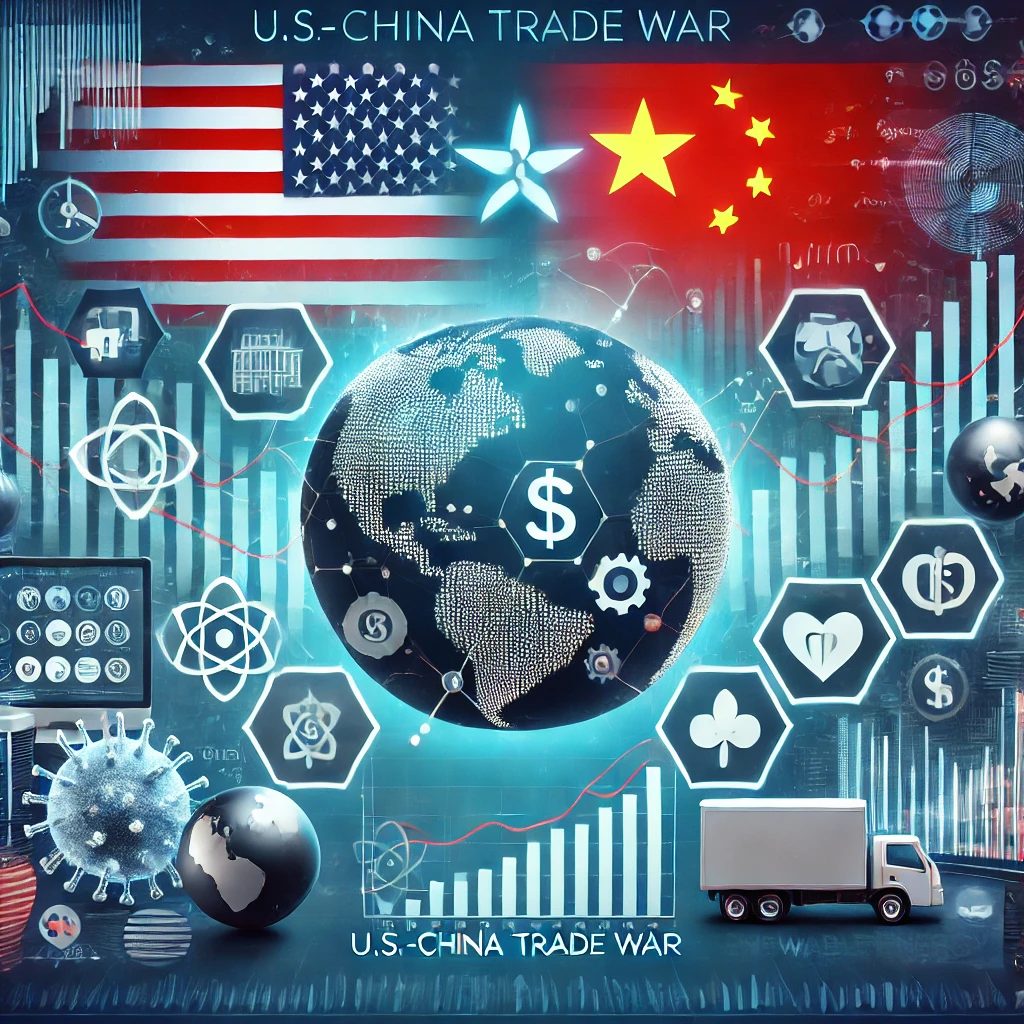Introduction:
Despite the escalating tensions between the U.S. and China, savvy investors can uncover hidden opportunities amidst the trade conflict. While the global economy feels the impact of tariffs and restrictions, certain sectors and industries are thriving, offering strategic investment potential. In this article, we’ll explore how investors can capitalize on cross-border opportunities during the U.S.-China trade war to generate wealth.

1. Economic Impact of the U.S.-China Trade War
The trade war between the world’s two largest economies has far-reaching consequences, disrupting global supply chains, raising tariffs, and slowing down economic growth. However, these disruptions also present opportunities in specific sectors, as industries adapt and innovate. Let’s break down some key economic impacts:
- Manufacturing Shifts: Companies are diversifying their supply chains to reduce dependence on China, creating opportunities in countries like Vietnam, India, and Mexico.
- Tariff Influence: Increased tariffs have led to higher costs for U.S. companies importing Chinese goods, but they have also motivated domestic production and innovation in alternative markets.
- Technology and Intellectual Property Disputes: The technology sector, particularly in semiconductors and AI, has faced restrictions, opening up opportunities for new market entrants and investment in alternative tech solutions.
| Economic Factor | Impact on Trade | Potential Opportunities |
|---|---|---|
| Manufacturing Diversification | Shift away from China | Investment in emerging markets |
| Tariffs on Chinese Goods | Increased production costs | Opportunities in local production |
| Technology Restrictions | Limited access to tech resources | Investment in tech alternatives |
2. Industries Thriving Amidst the Trade War
While some industries have struggled under the pressure of the U.S.-China trade conflict, others have seen remarkable growth. Investors should pay attention to sectors that are resilient or even thriving despite the economic turbulence:
- E-commerce and Digital Infrastructure: As global trade becomes more complex, e-commerce platforms and logistics companies that facilitate cross-border trade are seeing increased demand.
- Renewable Energy: Both China and the U.S. are heavily investing in renewable energy sectors, such as solar and wind, due to environmental policies and the need for energy security.
- Healthcare and Pharmaceuticals: With global demand for healthcare and medicine rising, investments in healthcare technology, pharmaceuticals, and biotechnology are proving to be resilient to trade war effects.
| Industry | Growth Driver | Investment Opportunity |
|---|---|---|
| E-commerce & Logistics | Increased cross-border trade complexity | E-commerce platforms, logistics |
| Renewable Energy | Environmental policies and demand | Solar, wind energy companies |
| Healthcare & Pharmaceuticals | Global healthcare demand | Biotech, pharmaceutical stocks |
3. Investment Strategies for Navigating the U.S.-China Trade War
Investors looking to capitalize on opportunities amid the trade war should consider the following strategies to mitigate risks and maximize returns:
Diversify Across Geographies
One of the most effective ways to reduce risk during trade conflicts is to diversify your portfolio across different geographies. By investing in emerging markets such as Southeast Asia, India, and Latin America, investors can capitalize on the manufacturing shifts and avoid overexposure to U.S.-China volatility.
Focus on Defensive Sectors
Sectors such as healthcare, utilities, and consumer staples tend to perform well during economic downturns or periods of uncertainty. These industries provide essential goods and services, making them less vulnerable to trade disruptions.
Invest in Innovation
During times of trade tension, innovation often flourishes as companies seek new ways to overcome barriers. Investing in tech companies that are focusing on innovation in AI, automation, and alternative energy can yield significant returns.
Leverage ETFs and Mutual Funds
For those seeking a diversified approach, exchange-traded funds (ETFs) and mutual funds focusing on emerging markets or specific sectors (like technology or healthcare) are a solid option. These funds allow you to invest across multiple industries and regions, spreading risk while maintaining growth potential.
| Strategy | Description | Why it Works |
|---|---|---|
| Geographic Diversification | Invest in emerging markets | Reduces overexposure to trade war |
| Focus on Defensive Sectors | Healthcare, utilities, consumer staples | Performs well during downturns |
| Invest in Innovation | Focus on AI, renewable energy, automation | Innovation thrives under pressure |
| ETFs & Mutual Funds | Diversified sector and geographic funds | Spread risk, maintain growth |
Conclusion:
The U.S.-China trade war, while disruptive, also offers unique investment opportunities for those who can navigate the shifting landscape. By focusing on industries that are resilient or growing, diversifying geographically, and investing in innovation, smart investors can turn trade war adversity into long-term success. As global trade continues to evolve, those who adapt and strategize will find themselves well-positioned for future growth.

